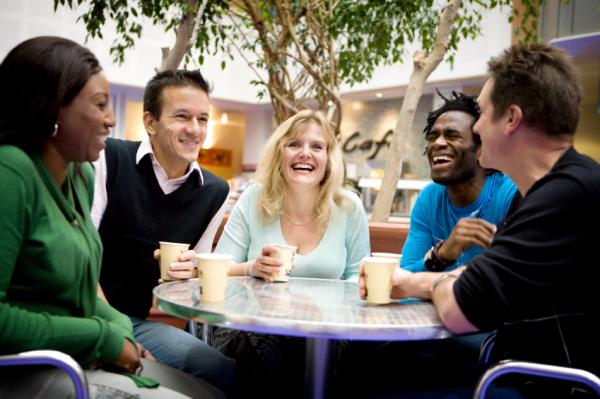kazanka.gnomio.com
Questioning Dating Perferences

Looking For Free Online Dating? Try Loveawake:
I think it is ok to choose or reject any sexual or romantic partner for literally ANY reason. If a person wants to only date within their own race or they want only partners with no bisexuality in their past, or no history of mental illness or addiction, they can pick based on any factors they want. Sexual choices are not a realm where “equal opportunity” needs to be applied.
This is from a commenter on a post about "deal breakers" from the dating blog. It's the kind of statement that sounds really empowering to people, however, it's also something that needs further examination.
If you take a close look at dating preferences, they are gateways into the kinds of biases and prejudices that, when considered collectively, form the myriad of oppressions found in our society.
Having dated bisexual women in the past, as well as having bisexual male and female friends, I'm well aware of the social stigmas that bisexual folks suffer from. This, not only amongst heterosexuals, but also amongst the gay and lesbian community. Unfortunately, it's often the case that when people say they don't want to date someone who is interested in, or has a history of, dating across gender - they are operating from stereotypes and biases. They assume, for example, that bisexuality is just an excuse to be promiscuous. Or that it's about a person not being "mature enough" or "healthy enough" to "pick a side and stay there." These kinds of assumptions are really commonplace tropes that operate on an almost unconscious level for most people. Even hearing the word "bisexual" conjures up all kinds of deviant stuff. But beyond that, I believe one of the biggest stinging points of the narrative is the idea that bisexual folks can't commit, that they'd never be committed partners and thus should be rejected out of hand.
Dating within one's own race is, perhaps, more complicated. Race, itself, is such a muddy landscape. On the one hand, it's a fluid social construct with no inherent biological meaning or fixedness, which is contrary to how people tend to popularly understand it. On the other hand, as a social construct, race has a deep and cutting impact on nearly every aspect of human life. So, it's not surprising that it enters heavily into dating preferences, to the point where acceptance or rejection of someone might come down solely to race.
The problems with dating racial preferences are similar to problems I mentioned above with bisexuality. They tend to be unexamined, and they also tend to rely on stereotypes and biases. For example, I have heard college-educated white folks say things like "I don't date black people because we don't have anything in common." When you push a little on the "in common" part, what often comes up are comments about educational background and interests supposedly related to said educational background. And in bringing up educational background, there's also an implied assumption of intelligence difference occurring, taping into the old white supremacist intelligence narratives.
However, when it comes to race and dating preferences, it's much more than just about individual conscious or unconscious racism and stereotypes. An additional challenge, I believe, is that racial dating preferences tend to be strongly upheld and reinforced by one's family, friends, and even the community(s) a person lives in. In fact, sometimes people end up rejecting someone of a different racial background not because of their own preferences, but due to the social pressures of those around them. The fact that I am white played into the disintegration of a relationship I had last year with a woman from Burma. Her family simply couldn't believe that a white man would want to be a committed partner to an Asian woman. To them, white men were mostly sexually promiscuous and unfaithful. In addition, having spent many years living in Thailand, they probably witnessed enough "sexual tourism" and white male privilege around Asian women to create a lot of skepticism towards us in general. Yet, in my case, they were wrong. And both I and my former girlfriend suffered as a result.
I bring these two preference examples up not to suggest that everyone should be "open" to dating everyone. That's ridiculous. You should date who you find attractive and believe might be a good partner for you. However, in bringing up these two examples, I'm suggesting that it's worth really examining your dating preferences because some of them might be blocking you from finding a great partner. And furthermore, the world is crying out for more conscious people less given to easy biases and prejudice.
And you, actually, the list of preferences that could be re-examined is long. Here are some more that I think need to be given a closer look:
1. Body weight
2. Desiring "masculine" men or "feminine" women
3. Hair color - especially the whole "blonde" thing
4. Sexual organ size
5. Sound of someone's voice
6. Physical disabilities
Again, just so that no-one gets all wound in a bunch, this post isn't about shaming people into dating anyone and everyone, or trying to be attracted to people they aren't, for whatever reason, attracted to. It's about sparking curiosity about something that people often consider to be fairly fixed and personal - dating preferences. Which I'm arguing is neither fixed, nor entirely personal.
So, what do you think? Do you feel preferences are entirely personal? Have you had experiences that made you reconsider a previous preference?